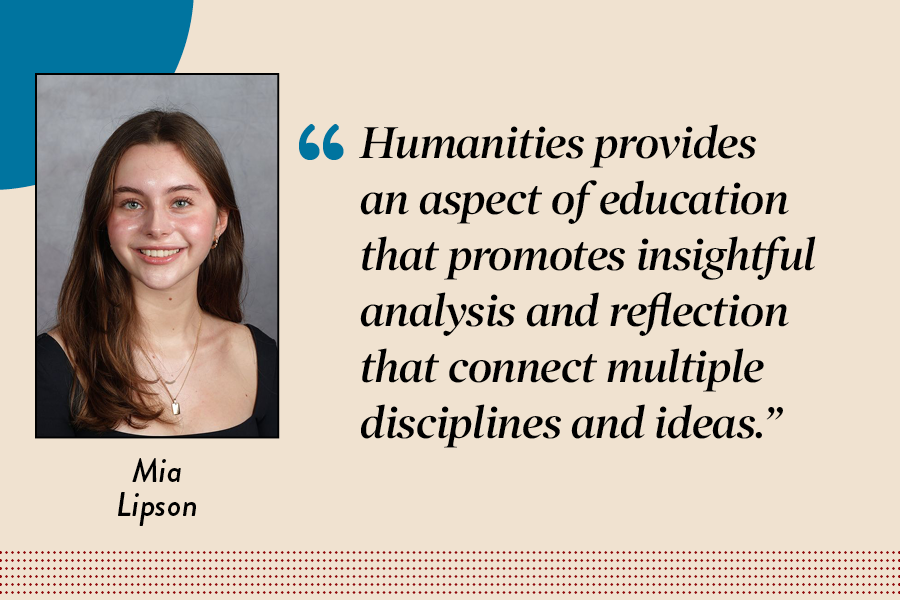As a senior, I am often asked the question, “What are you majoring in?” When I respond with my major of choice, history, I am used to seeing confusion wash over people’s faces.
I am often told how I’m one of the only people they know who is majoring in the humanities. Some are shocked that I would consider pursuing a topic where they struggle to see my future career. Many ask how I will make money as an adult.
Their confusion is not surprising. Across the country, humanities majors are becoming increasingly rare.
Though the study of STEM fields is undeniably important, the study of humanities remains equally as crucial in educating well-rounded individuals, who can think critically and engage thoughtfully with the world. Humanities provides an aspect of education that promotes insightful analysis and reflection that connect multiple disciplines and ideas.
From 2012 to 2020, the number of humanities degrees awarded dropped nearly 25%, according to The Hechinger Report, a national nonprofit news organization that reports on education. The American Academy of Arts and Sciences found a similar result. In 2020, the number of humanities bachelor’s degrees awarded fell below 200,000 for the first time since 2002. This number has continued to fall.
Though these numbers seem to be distant figures in a time where it seems impossible to go a day without hearing a new horrifying statistic, they indicate a shocking trend that only seems to be worsening. Humanities are foundational to a functioning society. Take politics for example. Humanities education in civics is necessary for producing well-educated voters.
The loss of the humanities in education impacts everyone and risks the world falling victim to a sea of one-dimensional perspectives. This lack of well-roundedness will lead to a gaping hole in the knowledge of countless people. Without diversity of perspectives, a devastating lack of understanding will emerge. Learning across multiple fields will create engaged global citizens, who can utilize their humanities education to solve today’s problems.
At Lab, we are lucky to have a curriculum that inherently fosters well-roundedness. Though they may be frustrating for students who don’t enjoy certain subjects, both humanities and STEM requirements are gifts. Humanities education allows students to extract the value in receiving an education full of nuance that will teach them the necessary skills to be informed, thoughtful citizens, even if they don’t see the inherent value of that education themselves. The humanities is a necessary component to being a fully educated person, and the gift of that education should be cherished.






















































louise yamada • Oct 23, 2024 at 12:08 pm
this is a wonderful and i think important observation and excellent commentary in a small space outlining this key well rounding education for future critical thought.
brava